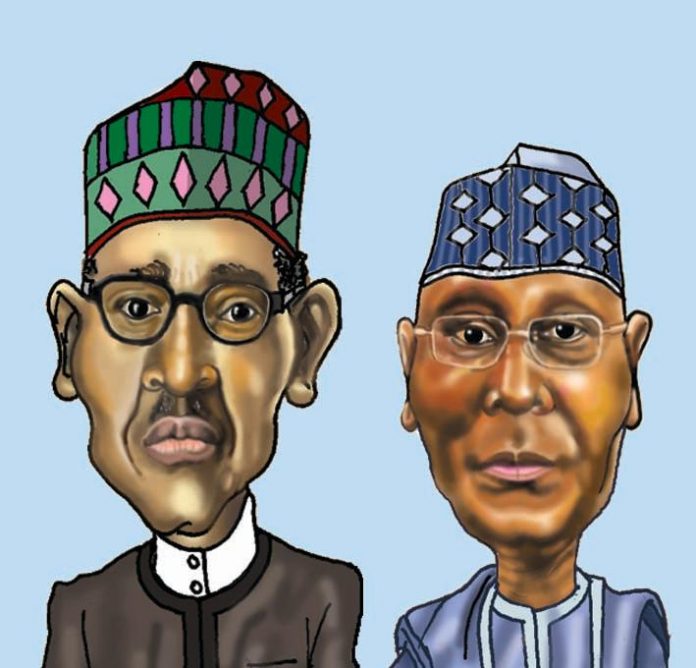By Ishaya Ibrahim
The South West has the second highest number of registered voters. It is home for 16.3 million voters, or 19 per cent of Nigeria’s voting population after the North West with more than 20 million registered voters.
An analysis of the voting history of the South West would reveal that it is flexible in its choice of presidential candidates.
In 2007, the candidate of the Action Congress of Nigeria (ACN), Atiku Abubakar, got the majority of the votes of the region ahead of his rival, the People’s Democratic Party (PDP)’s Goodluck Jonathan.
In the 2011 election, the PDP won the majority of the votes against the ACN’s candidate, Nuhu Ribadu, even though the same electorate voted the ACN at the other elections.
But in 2015, the South West voted the APC at both the local and presidential elections.
In the 2019 election, the APC’s candidate, Muhammadu Buhari expects that the South West would vote for him since one of their son, Professor Yemi Osinbajo is his running mate.
On his part, the PDP’s candidate, Atiku, anticipates a support from the South West since he has promised them what they have always demanded for – restructuring. Besides, one of Atiku’s wives, Titi, comes from the South West and is expected to influence the voting pattern of her kinsmen on February 16.
Here is how the state’s in the region will vote.
Lagos
Lagos has the largest voting population in Nigeria, but records the lowest percentage of voter-turnout during elections.
In 2011, only 31 percent of those who were registered to vote in the state came out to do so. In 2015, it dropped to 28 per cent.
In 2019, the state may not record more than 2 million people coming out to vote among the 6.5 million voters in the INEC register.
How these 2 million people will vote cannot easily be predicted because of the cosmopolitan nature of the state.
Analysts are forecasting a tight contest that may not resemble what happened in 2015.
In the 2015 election, the APC won the majority of the votes by 54 percent. The PDP got 43 percent.
In 2019, the PDP is expected to close the gap. Whoever emerges winner in the contest may have a slim lead of less than 2 percent.
Ogun
In the 2015 election, the APC had 58 per cent lead in Ogun state. The PDP got 39 per cent of the votes.
This may not be the situation in 2019 because the base of the APC in the state has slightly weaken with the party presenting two governorship and legislative candidates under different political parties.
While the APC is expected to lead in Ogun, the margin of defeat will be narrow.
Oyo
The APC in Oyo, like in 2015, is expected to ride home to victory at the presidential poll.
In the 2015 poll, it got 60 per cent of the votes. The PDP had 34 per cent.
In 2019, the APC may lose some of its voters. But is is expected to lead the state with at least 55 per cent.
Ondo
The situation in Ondo could have gone the way of the APC easily but for the local politics which may likely affect the votes of Buhari.
The former governor Olusegun Mimiko had left a legacy which the current governor, Rotimi Akeredolu, is struggling to maintain.
Mimiko had implemented a health policy that saw pregnant women accessing health care free. Akeredolu has monetized it.
The former governor also had a transport policy where pupils in primary and secondary schools don’t pay bus fare. The current governor has scrapped it.
The final straw is a land use charge which the current governor has introduced.
The votes of Buhari will be impacted by these issues since Akeredolu is not facing election until 2020.
Buhari had won Ondo in the 2015 election by 53 per cent lead. In 2019, he will be lucky to retain 50 per cent of those voters.
Ekiti
Ekiti state voted PDP in the 2015 presidential election. The situation has since changed. The PDP has lost the governorship.
In 2019, it will be a hard call to determine a clear winner. What is however certain is that the difference between whoever wins may not exceed 3 percent lead.
Osun
The anger of the Osun governorship election where the PDP won the main election but lost at the supplementary poll is likely to resonate with the people in the next election. Those who felt shortchanged may want to prove the point that they were indeed cheated.
Like the Ekiti election, Osun is also too close to call.













